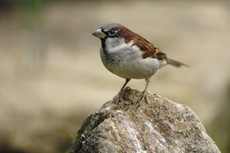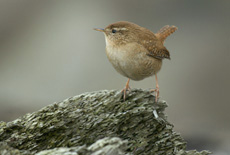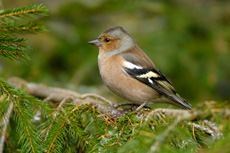WE’VE LOST 44 MILLION BIRDS SINCE 1966
WE’VE LOST 44 MILLION BIRDS SINCE 1966.
By Chantal Cooke.
Since 1966, we’ve lost breeding birds from our countryside at an average rate of a nesting pair every minute.
These shocking statistics are contained in the State of the UK’s Birds 2012 report published in November 2012, charting the ups and downs of our bird populations over the last few decades.

The scientists producing the report estimate there are 166 million nesting birds in the UK, compared with 210 million nesting birds in 1966.
The house sparrow has seen one of the greatest losses of any bird in the UK. Although since 2000 house sparrow numbers have started to increase, the UK still has 20 million fewer sparrows than it did in 1966. The current population is estimated at around 10 million.
We’ve lost one in five of the individual birds that we had in the 1960s – that’s 44 million birds – the equivalent to the current adult human population of England and Wales.

There have been many changes in the UK which have affected birds, most notably changes in the land use and the management of our countryside and seas – these can change the amount or quality of key resources needed by birds, such as suitable places to nest or a shortage of food in summer or winter. However, for some species, including the house sparrow, the precise reasons behind these declines aren’t fully understood.
The changing fortunes of two, related species highlight the changes to the UK’s birds: the turtle dove and the collared dove. In 1966, the turtle dove was still a widespread bird with about 140,000 breeding pairs, whilst numbers of the collared dove were very low, as the species only started nesting in the UK in 1955. Today there are only thought be around 14,000 pairs of turtle dove nesting in the UK, whereas the collared dove had exploded to around one million pairs.
Cold weather is thought to have had a startling effect on bird numbers too. The wren, for example – still the UK’s most numerous bird – has lost an average of 835 individuals a day since 2000. But another garden bird, the chaffinch, has increased at a rate of 150 individuals per day.

The State of the UK’s Birds 2012 report is produced by a coalition of three NGOs – RSPB, British Trust for Ornithology (BTO), and the Wildfowl & Wetlands Trust – and the UK Government’s statutory nature conservation agencies – the Countryside Council for Wales (CCW), Natural England (NE), Northern Ireland Environment Agency (NIEA), Scottish Natural Heritage (SNH), and the Joint Nature Conservation Committee. (JNCC).

About the Author:
Chantal Cooke is an award winning journalist and broadcaster with a passion for the planet. In 2002 she co-founded the award winning radio station PASSION for the PLANET and in 2009 Chantal was awarded London Leader in Sustainability status. Chantal also runs a successful communications agency – Panpathic Communications.
